Beilock embarks on historic tenure
| Published: 07-23-2023 2:28 AM |
HANOVER — The first 100 words of the letter Dartmouth President Sian Beilock penned to the college’s community after the Supreme Court struck down affirmative action last month included four hyperlinks to articles about the importance of diversity to academic and institutional success.
“Quantifying collective intelligence in human groups,” published in the Proceedings of the National Academy of Sciences, was data-heavy and technical. Another, “Why Diverse Teams Are Smarter,” from the Harvard Business Review, was for laymen.
Her commitment to a research-driven approach is squared with — and in some ways, contrasted by — the Beilock who tries to make herself as approachable and available as possible.
She’s a practicing psychological researcher, but she isn’t all lab coat.
“That’s how you get to know an institution, and that’s how you get the best outcome,” Beilock, 47, said in an interview last week with the Valley News. “By talking to a lot of different people and hearing their ideas, even if we don’t always agree. It’s an important part of my leadership.”
Her track record at the University of Chicago, paired with her administrative leadership at Barnard College, is partly why Dartmouth was drawn to her, said Liz Lempres, chair of the college’s board of trustees, in an interview. The board announced its decision to hire Beilock as president last summer, and she started in the role last month.
“(Beilock) speaks to not only the undergraduate and the graduate schools but this dual focus we have on teaching and research,” Lempres said. “She does have that unique experience from her formative years in academic leadership at University of Chicago, which is a very well-respected institution, complemented by her presidency at Barnard, which is also a very well-respected institution.”
For her conversation with the Valley News, Beilock sat in a side room in Parkhurst Hall with makeshift air-conditioning piped in through a ventilation duct. The official president’s office was being painted. Beilock has been settling in, Dartmouth-style: running through Pine Park and getting led by alums up Mount Moosilauke, where the college maintains trails and owns a lodge.
Article continues after...
Yesterday's Most Read Articles
She has hosted open “office hours” for students on the patio of the Collis Student Center, met town officials as well as “almost 300 faculty” out of over 700 and dropped a handful of Instagram posts about her burgeoning life in Hanover.
Her internet presence is far more animated than her predecessor’s, who was known for his reticence and behind-the-scenes discipline.
Beilock’s face grins up at the visitor to the homepage of her website, (sianbeilock.com), where a “Meet Sian” button links to a biography that emphasizes, along with the fact that she has published more than 100 peer-reviewed academic articles, that her TED Talk, called “Why We Choke Under Pressure — And How To Avoid It” has more than 2 million views.
The website is splashy, but Beilock sees it as practical. “It’s another way to communicate,” she said about her online life. “I feel like the onus is on me as a leader to reach people in different mediums, rather than send an email and sit back.”
It also helps her to express an identity beyond the one-dimensional, she said.
“I think we often don’t think about leaders as having different aspects of who they are: multiple selves, mom, researcher, runner. I think that’s an important lesson for people.”
Beilock started her tenure as the 19th president of Dartmouth — and the first woman to hold the title — the day after the college’s graduation, when her predecessor, Phil Hanlon, made his last speech from the proverbial lone pine stump. Her six years at the helm of Barnard College, in the Morningside Heights neighborhood of New York City, had ended the night before, at 11:59 p.m.
Beilock got her start in academia at the University of Chicago. There, teaching in the psychology department and running the Human Performance Lab, she was granted tenure at 32 and built a name for herself studying brains under stress. By the time Beilock turned 40, she had published two books and been named executive vice provost and an officer of the university. After 12 years in the Windy City, she left to take up the mantle at Barnard.
Having led Barnard through the COVID-19 pandemic and the concurrent social upheavals of that time, the Black Lives Matter and #MeToo movements, Beilock knows about stress: her own and that of her constituency. She led Barnard by “looking at data and communicating a lot,” she said.
Barnard, a women’s college, has a student body about half the size of Dartmouth’s. The school is Ivy League-adjacent, operating as one of Columbia University’s undergraduate schools but practicing independent admission.
Beilock is in the midst of getting briefed on a number of issues (the process is like “drinking from a fire hose,” she said). Any success in her first few months in the position, she said, will come from knowing that she has “huge blinders on.”
Beilock is a “big believer” in a concept from cognitive psychology known as “distributed cognition.”
“That means it’s not about just me or how I think. It’s about how we think across lots of different people,” she said.
“I spend a lot of time asking different people the same questions, because that’s how I sort of synthesize where we’re going. It’s through those hundreds of conversations that I start gaining my view and my voice.”
That approach, instead of cluttering her vision, has lent her a clarity of language. Just getting started at Dartmouth, Beilock is still speaking in ideas, but she certainly has the words for her plans. Her ultimate goal is to find power in differences and leverage a college-load of perspectives into a feat of mathematics.
“I’m a big believer that if (Dartmouth) can get to a place here where 1+1=3, then we’re going in the right direction,” Beilock said.
Beilock is stepping into the presidency as the Upper Valley strains against a historically low housing vacancy rate, exacerbated by Dartmouth’s pressure on the community’s housing stock. Critics say the market for student renters snaps up real estate and inflates prices.
The college was recently embroiled in an uproar about a planned dormitory with just under 400 beds on Lyme Road in Hanover, beyond the campus’ typical range. The college had to ask a favor of the town: the project required a special exception permit from the Zoning Board because a student residence is not a permitted use in the area.
The permit was unanimously passed by Hanover’s Zoning Board of Adjustment but over vocal shouts from neighbors, concerned about increased traffic and the impact on the “character” of the area as Dartmouth creeps over the traditional line between the school and the town.
Dartmouth is also contending with increasingly aggressive unionization efforts within the college, which is one of the largest employers in the area.
Successfully demanding fair pay, which would increase based on tuition costs, student workers unionized last March and graduate students followed suit in April, asking for comprehensive benefits and fairness for international student researchers. In June, employees of the college’s libraries also formed a union.
Beilock is hopeful for a fresh start.
“With any new college president, there is always a bit of anxiety, but so far President Beilock has made a great impression on the staff,” said Chris Peck, president of the local branch of the Service Employees International Union, which provided assistance to the student worker organizers during their unionizing efforts.
Beilock created a new position in her office: vice president for government and community relations. Led by Emma Wolfe, who came with Beilock from Barnard and had previously served in New York City’s then-mayor Bill De Blasio’s office, the position reports directly to Beilock.
Wolfe’s charge, according to Dartmouth’s website, is to maximize the college’s “connections with key government officials and policymakers in Hanover, Concord and Washington.”
In the first sphere of influence — the smallest fry but arguably just as lofty a challenge — Beilock wants to focus on housing and childcare for students, faculty and staff.
“Look, Dartmouth brings a lot to the community,” Beilock said. “We also have a responsibility to think about how we are of the community.”
The college isn’t always viewed “as the best community partner,” Beilock said. “Perhaps we’re viewed as sort of literally Ivy walls up.”
Combating that reputation requires “talking to folks,” she said.
“That means working cooperatively with the town; it means having conversations that we didn’t always have with different folks.”
Beilock had breakfast in the spring with Hanover Town Manager Alex Torpey, “and he’s now meeting regularly with my team,” she said.
“I’m pretty excited,” Torpey said in an interview. “I’ve been very appreciative about Sian’s and everybody’s clear interest in working together.”
In addition to housing concerns, meetings so far between the two groups have focused on sustainability concerns (Dartmouth lags behind the town in its transition off of fossil fuels) and economic development in downtown Hanover, where the college is one of the primary landlords. Then there are the typical “town and gown” issues: curbing the onslaught of students crossing the street without looking and keeping their bikes off of the sidewalks.
“I’m big about having conversations and opening up silos, and I think we can do more together than pushing against each other,” Beilock said.
A leader of a lauded woman’s college seems an apt pick for Dartmouth, which is still busy living down its history as the penultimate Ivy to go co-ed, having opened its doors to women in 1972, ahead of only Columbia (which at least had Barnard to its name).
After Dartmouth went co-ed, male students hung banners outside new female dormitories proclaiming: “It’s a damn commie plot,” and newly-arrived female students were dubbed “cohogs” by their less-than-inviting peers.
A reputation for binge drinking and hazing has followed Dartmouth since the release of the 1978 movie “Animal House,” which is largely based on one of the screenwriters’ experiences in the Alpha Delta Phi fraternity at the college. (President Hanlon, a 1977 Dartmouth graduate, was once social chairman of that same fraternity, which has now gone dormant.)
An infamous Rolling Stone article from 2012 detailing abuse within fraternities at the college was subheaded: “A Dartmouth degree is a ticket to the top, but first you may have to get puked on by your drunken friends and wallow in human filth.”
In 2015, with Dartmouth one of 95 institutions nationwide under federal investigation for their handling of sexual assault investigations, Hanlon banned hard alcohol on campus and “pledgeships” within sororities and fraternities.
Virtually no college or university is a stranger to hazing allegations and misconduct within its party scene, but Dartmouth — which has more students participating in Greek life than any other school in the Ivy League — keeps the liability close to home.
The path forward at the school, Beilock said, isn’t to rid the college of frat houses, but to give students other outlets besides basements for their social life.
“Bad behavior and sexual assault have no place on our campus,” she said. “Everyone who’s involved has to be responsible for upholding that. But I like the idea of thinking about different types of communities. Sororities and fraternities, and what else do we do? How do we think about the ‘ands’?”
Beilock included a separate, implicit agenda in her letter to the college after the Supreme Court’s ruling on affirmative action. Just after the hyperlinks to the research she writes: “While there will be differences of opinion and robust discussion about the ruling itself, we begin the conversation from this common, foundational understanding that a diversity of lived experiences and perspectives enriches discovery and the Dartmouth education — it makes Dartmouth stronger.”
The court’s action prepared the ground for a different kind of discussion about diversity: “I think that people could have different views about the decision,” Beilock said.
“We think of free expression as the antithesis of diversity and inclusion, but really you can’t have true free expression and thought unless you have different viewpoints pushing at each other.”
Beilock wants to create an ethos at Dartmouth that encourages “ideological diversity,” she said. “It’s about having people with different political views at the table, but it’s also about having people at the table who grew up in very different ways, who experienced the world in different ways and our systems in different ways.”
In rubbing shoulders with an ideological opposite, one can learn to “separate a viewpoint from a person,” Beilock said. “We can have very different viewpoints, and I can still like you as a person. How we learn how to not emotionally react in ways that hinder our ability to reason. These are hard things to do.”
A 2022 survey by The Dartmouth, the college’s newspaper, found that a large majority of the graduating class that year — more than 80% — held an “unfavorable” view of the Republican party. But reputationally, Dartmouth is known as more conservative than many of its peer schools, both in the Ivy League and in New England.
Perhaps this is a product of history. The college graduated pundits Dinesh D’Souza and Laura Ingraham, who were editors of the still-standing conservative paper The Dartmouth Review in the 1980s and who famously published the names of still-closeted gay students, faculty and staff during the AIDS crisis.
Still, the past few years at the college have seen students shouting down conservative speakers brought to campus by the Dartmouth Republicans and the same political divisiveness that withers many a debate at institutions of higher education across the country.
A 2020 survey by the nonprofit civil liberties group the Foundation for Individual Rights and Expression, or FIRE, left Dartmouth low in its rankings of colleges that support campus free speech. (FIRE is considered by some to be a competitor to the American Civil Liberties Union).
Time will tell whether Beilock’s prioritization of free expression, as she defines it, is ahead of the historical curve or reactionary — and whether Dartmouth’s student body will embrace it. But her intervention, the figurative “table” at which the tense shoulder rubbing could happen already has a name.
“I talk a lot about this idea of creating not just a safe space, but a brave space,” Beilock said, referring to the often-maligned “safe space” concept, that has become a dog whistle of sorts for those railing against the excesses of “wokeism” and the casualties of cancel culture.
Dartmouth could create “brave space” by “setting a tone from the president, that other people can have different views,” she said. “It comes from the tone at the top.”
Dartmouth should be a place “where we can make mistakes and where being uncomfortable is part of how you learn,” she said. “That’s true for faculty, students and staff.”
This, too, comes from her research as a psychologist.
“I know that when you’re nervous and uncomfortable — and feeling nervous about being nervous and uncomfortable, you just have fewer cognitive resources to think with and perform at your best,” she said. “So if we take a little bit of that off, it opens up more brainpower.
“I’ve heard from a lot of people that they want Dartmouth to be that type of place,” Beilock said. “We really have the opportunity to lead here.”
This aspiration is also what drew the attention of the board of trustees to Beilock, Lempres, the board’s chair, said.
“Sian had a very clear perspective, grounded in some equally clear principles, around the importance of freedom of expression and how that is critical to building a truly diverse and welcoming environment,” Lempres said. “We were quite impressed by her clarity of her thinking on that.”
But Beilock’s precision doesn’t come at the expense of a cheeky joke.
A quick discussion about the merits of tacos from White River Junction’s Trail Break versus burritos from Hanover’s Boloco closed out the interview.
Shooting off her own jargon for a final time, Beilock said they didn’t have to be mutually exclusive: Upper Valley restaurant fare can exist in a brave space of its own.
“We can have dialogue across both of them,” she said, ending the interview with a knowing smirk.
Frances Mize is a Report for America corps member. She can be reached at fmize@vnews.com or 603-727-3242.

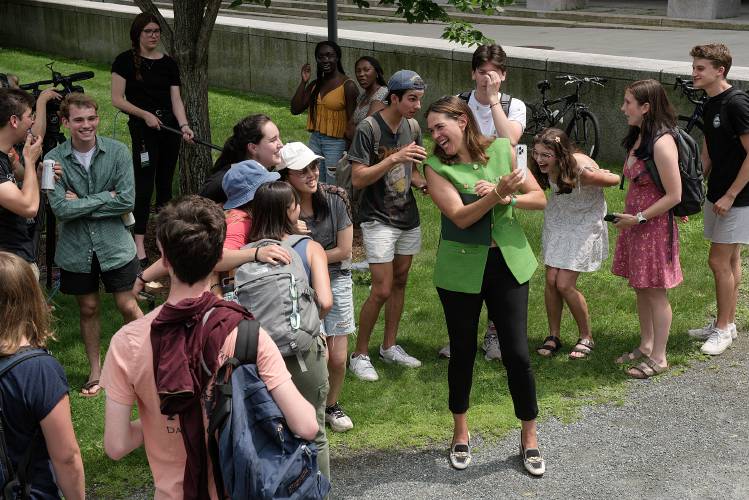
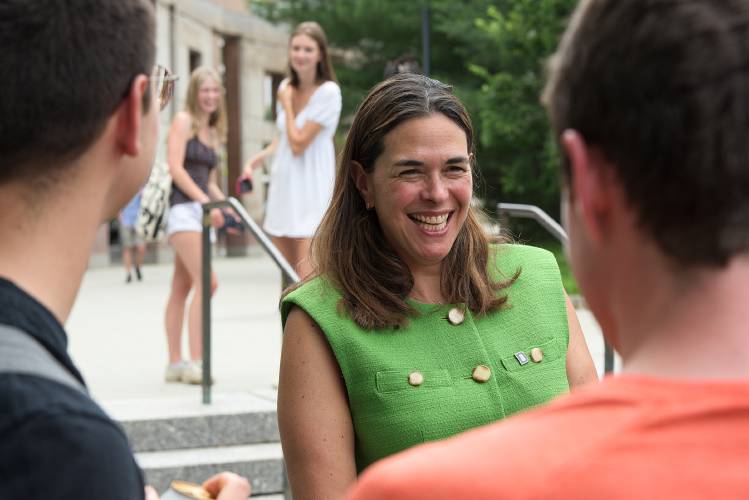
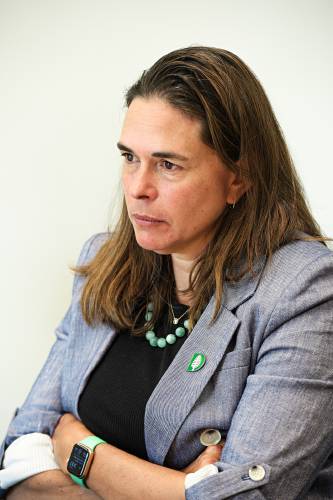
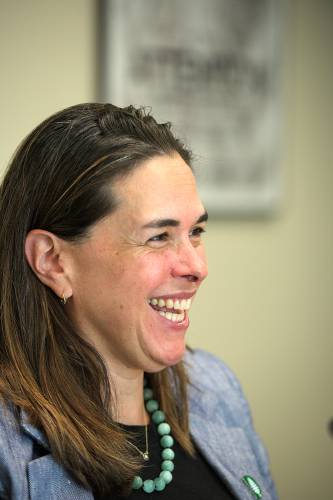
 At Dartmouth, hundreds protest ongoing war in Gaza and express support for academic freedom
At Dartmouth, hundreds protest ongoing war in Gaza and express support for academic freedom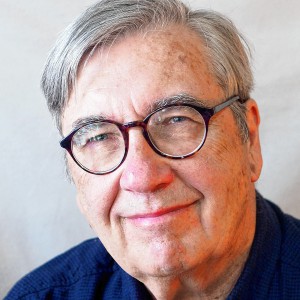 Over Easy: ‘A breakfast without a newspaper is a horse without a saddle’
Over Easy: ‘A breakfast without a newspaper is a horse without a saddle’
